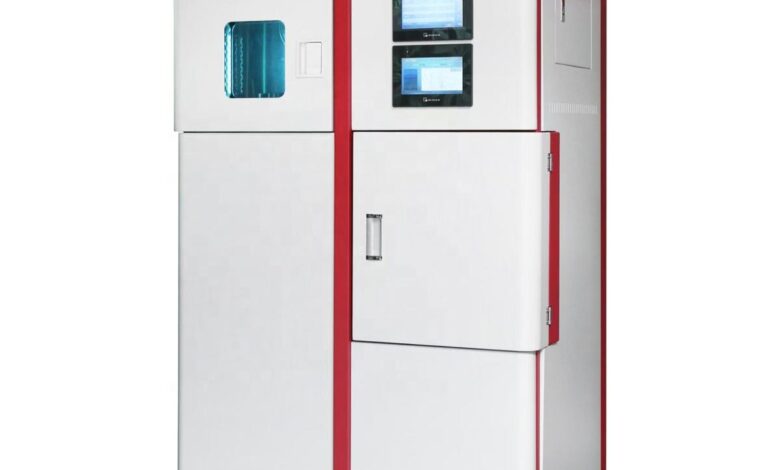Why Every Small Business Creating Physical Products Needs a Light Fastness Tester

As a small business owner, you likely wear many hats—designer, marketer, product developer, and quality control officer. You’ve worked hard to build a brand that stands for something: quality, durability, trust. But what if the colors on your product start to fade after just a few weeks? What if your customer receives a beautiful piece, only for it to dull and discolor before the month is out?
The culprit? Light exposure.
Sunlight, fluorescent lights, and even indoor LED lighting can cause materials—fabrics, plastics, coatings, and more—to fade over time. That’s why having a light fastness tester isn’t just for big factories anymore. It’s quickly becoming a must-have tool for small business owners who care about product longevity and customer satisfaction.
So, what is a light fastness tester, and why should you care? More importantly, what’s the best solution available for growing businesses like yours?
Let’s dive in.
What is a Light Fastness Tester?
A light fastness tester is a machine designed to simulate the effect of light exposure on materials over time. It mimics the conditions your product would experience under natural sunlight or artificial lighting—compressing months or even years of exposure into a few days.
The purpose? To reveal how colors and materials will react before your customer ever lays eyes on them.
From textile manufacturers to packaging companies, automotive suppliers to fashion brands, businesses around the world use light fastness testing to prevent color fading and quality issues. And now, thanks to compact and affordable models, small businesses can too.
Why Light Testing Matters for Small Businesses
You might think, “I don’t need industrial-level testing. I’m just a small operation.”
But here’s the thing: your customers have the same expectations of you as they do of the big brands. They want the products they buy to last. They expect consistency, quality, and performance. If your product fades, yellows, or loses vibrancy—your brand takes the hit.
Let’s break down the real benefits:
1. Catch Problems Early
A batch of fabric dye that doesn’t hold up under UV? A print that discolors after two weeks in a sunny window? These issues can go unnoticed—until the complaints start rolling in. A light fastness tester helps you identify weaknesses before your products hit the market.
2. Reduce Returns and Refunds
When your product fails to meet expectations, returns follow. And every return cuts into your profit margin. Light testing gives you the confidence to ship products knowing they’ll last, which means fewer headaches (and losses) down the road.
3. Protect Your Brand Reputation
Negative reviews are hard to shake—especially for a small brand. Customers remember when things go wrong. Testing your materials adds an extra layer of quality control that helps you deliver consistently and build trust with your audience.
4. Open Doors to New Markets
Want to sell internationally? Many retailers and markets (especially in Europe and Asia) require materials to meet certain durability or UV resistance standards. A light fastness tester lets you certify your products with confidence.
Meet Your New Favorite Tool: The Air-Cooled Xenon Arc Tester YG611M
If you’re convinced that testing is the next smart move, the big question becomes: which machine is right for you?
We highly recommend the Air-Cooled Xenon Arc Tester YG611M, especially for small and mid-sized businesses.
Why? Because it’s designed to offer professional-level testing capabilities without the steep price tag or bulky infrastructure of traditional lab equipment.
Key Features:
- Air-cooled design – Say goodbye to water cooling systems and plumbing headaches.
- Xenon arc lamp – Accurately simulates the full light spectrum, including UV rays.
- Digital control system – Easy to use with programmable test parameters.
- Compact and low maintenance – Fits easily into small offices, studios, or workshops.
- Reliable performance – Trusted by manufacturers across multiple industries.
You don’t need a science degree to use it. You just need a commitment to quality.
How It Works
Even if you’ve never used lab equipment before, the process is incredibly simple:
- Prepare your sample – Whether it’s textile, plastic, leather, or paint.
- Place it inside the chamber – Along with a reference material if needed.
- Select your testing parameters – Duration, temperature, humidity, and light intensity.
- Start the test – The machine runs continuously to simulate days or weeks of exposure.
- Evaluate the results – Visually compare color changes or use colorimeters for precision.
In just a few hours or days, you’ll know exactly how your materials will perform over time.
Who Should Use a Light Fastness Tester?
If you work in any of the following areas, this tool should already be in your toolkit:
- Textile design and printing
- Plastic product manufacturing
- Automotive interior fabrication
- Paints and coatings
- Packaging design
- Fashion accessories
- Upholstery and furniture
- Outdoor gear and apparel
In short: if your product has color, and your customer will ever use it in the sun, you need to test it.
The Bottom Line: Small Business, Big Standards
Your business may be small, but your standards don’t have to be. In fact, quality is your greatest weapon in a crowded market. By using a light fastness tester, you ensure that every product that leaves your hands will continue to look great in your customer’s.
That’s not just good business—it’s smart branding.
The Air-Cooled Xenon Arc Tester YG611M makes high-quality testing easy, affordable, and practical for businesses of all sizes. Don’t wait for complaints or costly returns to tell you your product isn’t holding up.
Be proactive. Be prepared. Be proud of every item you ship.
